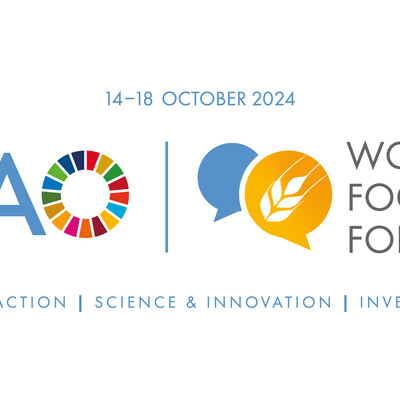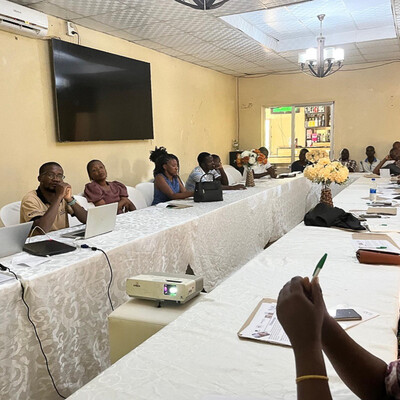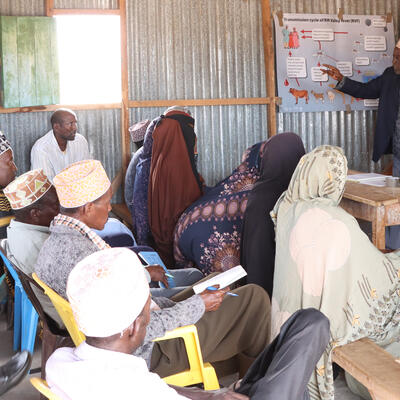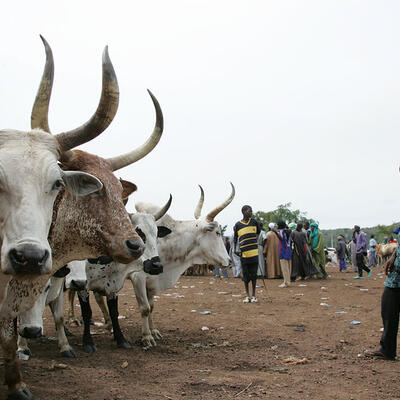
ILRI workshop brings together One Health experts in west Africa to identify areas of collaboration
A three-day workshop was held from 6-8 September 2022 in Ouagadougou, Burkina Faso by the International Livestock Research Institute (ILRI), through the One Health Research, Education and Outreach Centre in Africa (OHRECA). The workshop aimed to facilitate networking between the One Health stakeholders in West Africa and identify areas of collaboration. This workshop was also an opportunity to launch new One Health projects by ILRI, and validate the assessment results of One Health platforms in Burkina Faso, Mali and Senegal.
The workshop brought together national platforms and other One Health initiatives from Mali, Senegal, Burkina Faso and Côte d'Ivoire. In addition, key regional initiatives such as Africa One Health University Network (AFROHUN) and the African Science Partnership for Intervention Research Excellence (Afrique One ASPIRE) were represented. The official opening ceremony was attended by representatives of the Burkina Faso Ministry of Health, the Ministry of Livestock, and the Ministry of Environment, which are directly involved in the One Health national committee.
In his opening speech, ILRI deputy director of general biosciences, Dieter Schillinger said that over 60% of all infectious diseases emerge from animals, and preventing and controlling these diseases protects humans, animals and agriculture. This leads to improved livelihoods, food and nutrition security. He hoped that the workshop would contribute to these objectives.
Next was an address by the ILRI regional representative for west Africa, Abdrahmane Wane, who noted that the idea of One Health was to bring together different sectors and competencies to work on challenges that affect animal, human and ecosystem health. He added that it is much more effective to deal with these health challenges collaboratively rather than in isolation.
Speaking on behalf of the Minister of Environment, Energy, Water and Sanitation in Burkina Faso, deputy secretary general Samuel Paré highlighted that emerging and re-emerging diseases are a constant threat, and that sectoral approaches so far have not been very effective. With this in mind, Burkina Faso set up a One Health technical secretariat which brings together all actors from the sectors and disciplines concerned. He further added that the workshop was necessary for key players in Mali, Senegal, Cote d'Ivoire and Burkina Faso to identify shortcomings in implementation of the One Health approach, and make recommendations for better collaboration.
‘As chair of the steering committee of the One Health platform in Burkina Faso, I welcome everyone to this important event which marks a decisive turning point in the realization of this collaboration. I hope this workshop will be an opportunity to share experiences of the One Health approach, pool all the efforts made in this field, consolidate our professional links, and launch new initiatives,’ he said.
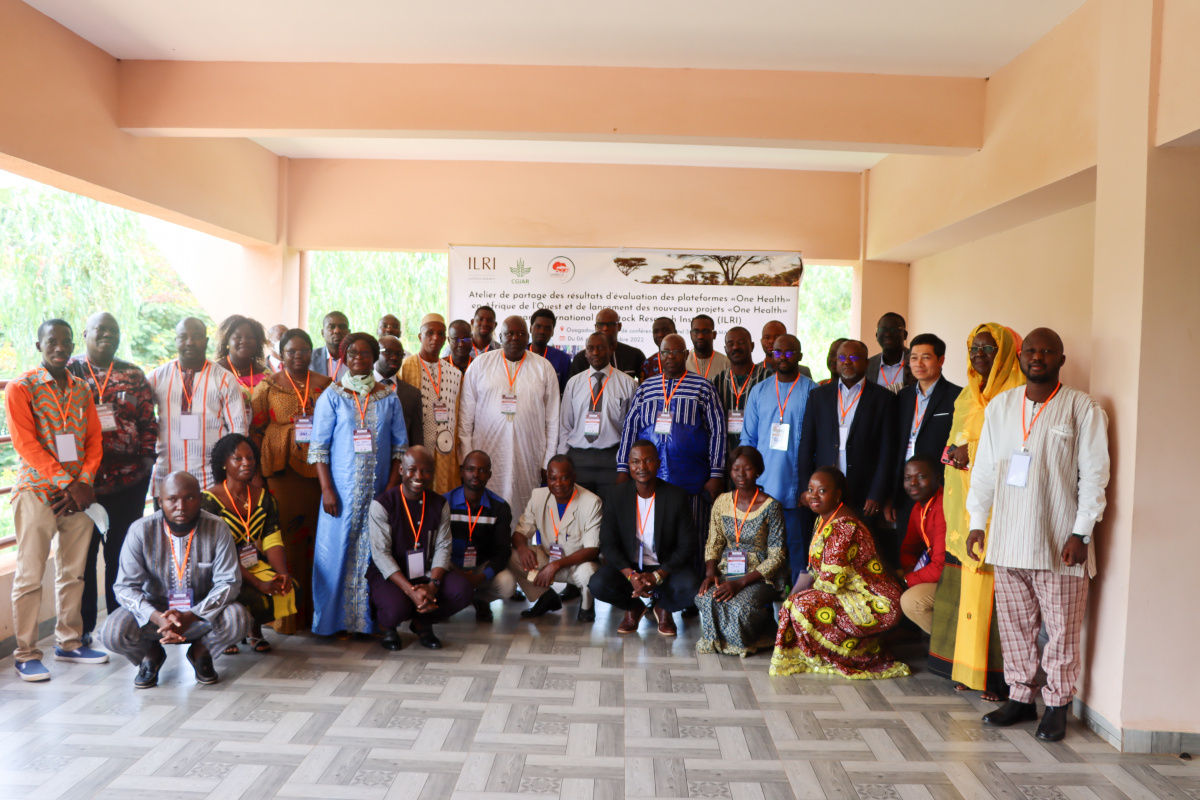
One Health experts at the west Africa workshop (photo credit: ILRI/Geoffrey Njenga).
The first day was dedicated to the presentation and discussion of One Health initiatives implemented in west Africa and the platforms of the invited countries.
The CGIAR One Health initiative was presented by Hung Nguyen, co-leader of the Animal and Human Health Program at ILRI. The initiative aims to protect human health by improving the detection, prevention and control of zoonoses, foodborne diseases and antimicrobial resistance (AMR) in low- and middle-income countries (LMICs). Its work is carried out through five work packages: zoonoses, food safety, antimicrobial resistance, environment and economy, and governance and behaviour. In west Africa, Cote d’Ivoire has been selected for a case study focusing on disease emergence in bushmeat.
Bernard Bett, senior scientist and team lead of OHRECA, gave an overview of the centre and its activities on the continent. Additional speakers included Bassirou Bonfoh, director of the consortium Afrique One ASPIRE and the OHRECA advisory committee, who presented an overview of Afrique One ASPIRE. Sara Danièle Dieng gave an overview of AFROHUN, and Yacinthe Guigma explained One Health initiatives carried out by the World Organization for Animal Health (WOAH) in west Africa. Representatives for Mali, Burkina Faso and Senegal also gave overviews of their national One Health platforms. These presentations were followed by enriching discussions and interactions between the actors.
Key messages from the first day included the need to establish a strong partnership among different initiatives and national platforms to avoid duplication of activities, make One Health training opportunities more accessible and develop a clear business case for donors, and involve communities in the assessment and control of complex health problems.
The results of the One Health platform evaluations in Senegal, Burkina Faso and Mali were presented on the second day. The evaluation was done using the Network for Evaluation of One Health (NEOH), a tool that evaluates competencies based on six criteria, including: One Health thinking, planning, working (operations), sharing, learning, and system organization to improve the efficiency and effectiveness of platforms.
Furthermore, group work was organized and recommendations collected from participants to improve subsequent evaluations. In addition, Abdoul Ilboudo, a graduate fellow at OHRECA, presented a project on the epidemiology of Crimean-Congo haemorrhagic fever (CCHF) in Burkina Faso. The project aims to generate scientific evidence on the role of interactions between domestic animals, humans, the environment and vectors in maintaining the transmission of CCHF. Finally, principal investigator Theodore Knight-Jones provided the highlights of the ILRI-led ‘Urban food markets in Africa’ project, which is improving food safety in urban informal markets of Burkina Faso and Ethiopia using a pull-push approach.
Launch of the Poultry Losses and One Health (POLOH) project
On 8 September 2022, the Poultry Losses and One Health (POLOH) project was launched in Burkina Faso. The project aims to enhance household food security and safety and improve the livelihoods of smallholder poultry producers by reducing flock mortality, zoonotic pathogen occurrence, and human health risks along the value chain. The project is led by ILRI and the University of Florida and funded by the United States Agency for International Development (USAID).
During the launch, principal investigator Michel Dione said, ‘This project brings a new approach to tackle zoonotic diseases of poultry at production and transportation nodes of the value chain in rural Burkina Faso. We aim to increase chicken production while ensuring that consumers have access to healthy and safe animal-source foods. This is fundamental for sustainable food security.’
The project is being implemented in the central-west region of Burkina Faso in the commune of Boussouma, using a gendered mixed method to gain insights into smallholder households' food security and safety.







